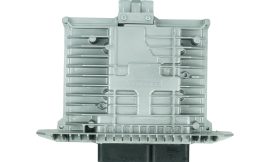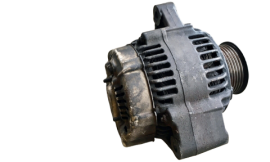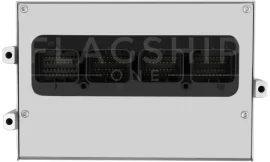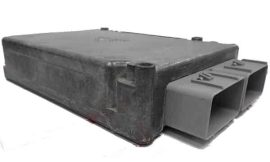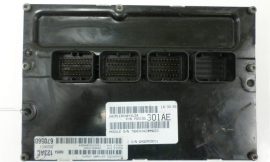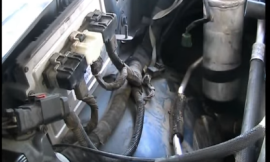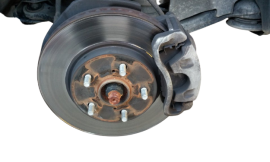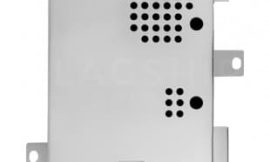Last updated on April 3rd, 2022 at 12:20 pm
Most modern cars have control modules in the form of onboard computerized control systems, and they control engine performance and terrain handling. The Engine Control Module (ECM) is one of the earliest onboard computer systems for mass-market production cars. Older cars have both the ECM and the TCM (Transmission Control Module) working as independent onboard computer systems. Modern vehicles are different from older ones because they have both the TCM and the ECM working together as a single control module known as the Powertrain Control Module (PCM).
The Powertrain control module monitors the independent functioning of your vehicle’s onboard systems to guarantee optimal performance and overall efficiency. Besides controlling your car’s check engine light, the PCM also controls your car’s fuel mixture. Modern cars have multiple sensors that collect information about the car’s systems. These sensors are connected to the PCM, and this explains why some cars become undrivable when the PCM has issues.

How does a Powertrain Control Module work?
Now that you know that the PCM is a computerized control module present in modern cars read on to understand how it works. Your car’s onboard computer systems send data to the PCM, and this makes this component the brains behind your vehicle’s power. Some of these built-in systems include the:
• ABS Braking System (If present)
• The Check Engine Light
• The Throttle Position System
The PCM receives data from a series of sensor, then uses sophisticated software to interpret the data. After receiving the data, the powertrain control module software calculates the changes and settings that need to be made to the transmission system, fuel system, and the braking system.
Unlike other automotive components, the PCM cannot be repaired once it starts malfunctioning or failing. With this in mind, you should replace the Powertrain Control module even when it is diagnosed with minor short circuits. The PCM not only receives data from the check engine light system, but it also controls the system. Therefore, a malfunctioning or failing PCM will result in the flashing of the check engine light even when the engine doesn’t have issues.
Why should you replace Your PCM?
The PCM functions as your car’s central onboard computer system, and it controls engine performance and your car’s drivability. Voltage overloads can make the powertrain control module to fail. Once the PCM fails or malfunctions, your car’s overall handling and its engine’s performance might dip. Replacing PCMs immediately they start failing can help in improving your car’s handling and the overall engine performance. You should have a budget that ranges between $400 and $1500 if you are shopping for replacement PCMs.

PCM replacement costs can reach a maximum of $1650, but this is dependent on a vehicle’s make and model. It is worth noting that this cost covers both labor and the purchase of replacement parts.
The PCM controls the onboard systems in modern cars, and this is the reason why modern cars are efficient and reliable than their older counterparts. A bad PCM malfunctions and experiences failures that may result in: Your vehicle failing to start or starting after several failed attempts
Starting your vehicle might become tedious when the PCM has problems or when it is failing. You might come across engine ignition problems when the engine management control system is offline. The PCM controls the engine management control system, which in turn provides the necessary computer input needed to start your car’s engine. In most instances, a car’s engine might fail to start due to a short circuit in the wiring harness or an unbalanced fuel to air combustion ratio.
A dip in gas mileage
You may notice a progressive decline in your car’s gas mileage if the powertrain control module fails or malfunctions. One of the critical functions of the PCM is to regulate the fuel to air ratio. The PCM also decides when to shift your car’s gears, and the PCM’s gear shifting accuracy declines when it starts to have issues. You will experience a dip in gas mileage when the powertrain control module malfunctions, and this means that you will be spending more on gas than usual.
Engine stuttering or stalling
Car experts and mechanics reveal that engine stuttering or stalling is a severe mechanical problem resulting from a failing onboard computer system. The failure of the PCM in newer cars or the ECU in older cars sometimes lead to the stalling and misfiring of the engine due to timing problems. It would be best if you fix your car’s PCM problems during their onset since the symptoms don’t have a defined pattern.
Illumination of the check engine light
The powertrain control module is responsible for controlling the Engine Control Unit (ECU). An illumination of the check engine light is a pointer to a potential ECU problem, and this happens when a car’s onboard computer system detects issues with the sensors or circuits. The check engine light can mistakenly start flashing or illuminating if the PCM begins to have problems.
Resetting your car’s PCM is not a difficult task. You will need a wrench to loosen the nut that holds the negative battery cable in place. Disconnect the negative battery cable from your car’s battery and reconnect it after five minutes; this resets the PCM on a car by clearing its error codes.




